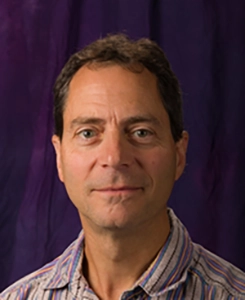Pre-Osteopathic Medicine (4 + 4, 3 plus 4)
The Early Acceptance Program is designed to facilitate the admission of Niagara University students into LECOM’s Doctor of Osteopathic Medicine program. LECOM will interview the student prior to their enrollment at Niagara University or within the first two years of being properly enrolled in the program. Students interviewing successfully will be offered a provisional acceptance to LECOM’s Doctor of Osteopathic Medicine program. Upon meeting the criteria for final acceptance, they will matriculate at the LECOM campus of their choice. Because this is a demanding professional program, requirements for acceptance have been established to demonstrate that the student is capable of handling the rigorous course load.
For admission to the 3 + 4 LECOM College of Osteopathic Medicine program, Niagara University students must complete the first three-year phase (phase I) at Niagara University in either the B.S. in biology or the B.A. in chemistry. Following the successful completion of the ascribed undergraduate phase of training, phase one, Niagara University students will continue with the second phase (phase II), under the auspices of LECOM and at associated clinical training sites.
The first year of phase II will constitute the fourth year of the Niagara University B.S. degree in biology or the B.A. in chemistry. Upon successful completion of this year, Niagara University will award the student a B.S. in biology or a B.A. in chemistry.
Pre dental Medicine (4+4)
The Early Acceptance Program is designed to facilitate the admission of Niagara University students into LECOM’s Doctor of Dental Medicine program. LECOM will interview the student prior to their enrollment at Niagara University or within the first two years of being properly enrolled in the program. Students interviewing successfully will be offered a provisional acceptance to LECOM’s Doctor of Dental Medicine program. Upon meeting the criteria for final acceptance, they will matriculate at the LECOM Bradenton, FL campus. Because this is a demanding professional program, requirements for acceptance have been established to demonstrate that the student is capable of handling the rigorous course load.
For admission to the LECOM School of Dental Medicine program, Niagara University students must complete the first four-year phase (phase 1) at Niagara University in either the B.S. or B.A. in biology or the B.A. in chemistry. Following the successful completion of phase 1, Niagara University students will continue with the second phase (phase 2), under the auspices of LECOM and at associated clinical training sites.
Pre-pharmacy Option (2 plus 3)
Niagara University and Lake Erie College of Pharmacy have formed a partnership offering Niagara University students in biology or chemistry the opportunity to enroll in its 2 3 five-year pre-pharmacy degree program (Pharm.D.). Traditionally, it takes LECOM students nine or more years to obtain a doctorate degree in pharmacy.
The 2 plus 3 pre-pharmacy program between NU and LECOM involves two phases. During phase I, select students who are in the top 25 percent of their graduating high school class will complete their first two years at Niagara University, taking a specified curriculum in biology or chemistry. During phase II of the pre-pharmacy program, students complete three years at LECOM School of Pharmacy where classes run 12 months of the year. Students will graduate with a Doctor of Pharmacy degree (Pharm.D.) which has become the preferred educational level for pharmacists.
LECOM School of Pharmacy will not accept transfer students into phase I of the program, nor will it accept advanced placement credit of science or mathematics courses into phase I of the program. Applications from U.S. citizens and permanent residents only will be accepted by LECOM School of Pharmacy.






